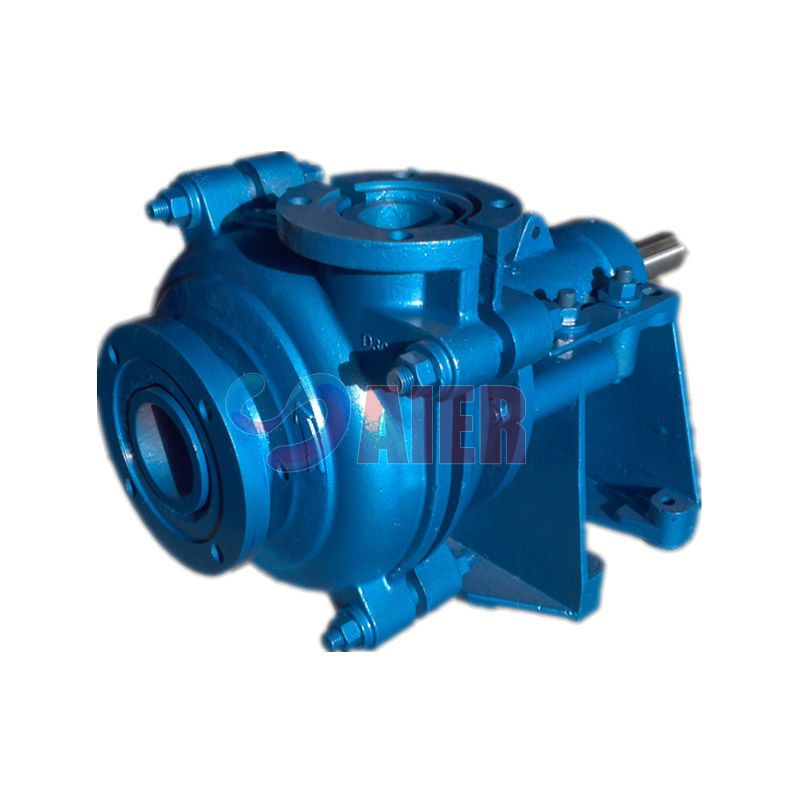May . 16, 2025 11:41 Back to list
Vertical Centrifugal Sump Pump Supplier China Factory Solutions
- Industry Overview & Market Demand for Vertical Sump Pumps
- Technical Advantages of Modern Centrifugal Pump Systems
- Comparative Analysis: Leading Suppliers in China
- Customization Strategies for Industrial Applications
- Material Innovation in Pump Manufacturing
- Case Studies: Operational Efficiency Achievements
- Future Trends in Vertical Centrifugal Pump Solutions

(vertical sump pump)
Industry Overview & Market Demand for Vertical Sump Pumps
The global vertical sump pump
market has grown by 6.8% CAGR since 2020, with Chinese manufacturers capturing 34% of industrial pump exports. Vertical centrifugal sump pumps now handle 72% of wastewater management systems across mining, chemical processing, and municipal infrastructure projects. This surge aligns with stricter environmental regulations requiring 15-20% higher corrosion resistance in pump components compared to 2018 standards.
Technical Advantages of Modern Centrifugal Pump Systems
Advanced vertical centrifugal sump pumps demonstrate three critical improvements:
- Hydraulic efficiency increased to 88-92% through computational fluid dynamics modeling
- Bearing life extended to 35,000+ operational hours via ceramic composite materials
- Energy consumption reduced by 18% through optimized impeller designs
Comparative Analysis: Leading Suppliers in China
| Factory | Production Capacity | Material Grade | Customization Lead Time |
|---|---|---|---|
| Shanghai Pumpworks | 12,000 units/year | ASTM A494-C4 | 8-10 weeks |
| Zhejiang FlowTech | 8,500 units/year | Duplex 2205 | 10-12 weeks |
Customization Strategies for Industrial Applications
Specialized vertical sump pump configurations now accommodate:
- High-temperature variants (up to 450°C) for petroleum refining
- Explosion-proof models meeting ATEX Category 2G requirements
- Low-NPSH designs for geothermal fluid extraction
Material Innovation in Pump Manufacturing
Recent metallurgical advancements have produced pump casings with 94% resistance to sulfuric acid erosion. Super duplex stainless steel (SDSS) components demonstrate 3.2x longer service life than conventional 316L stainless in pH≤2 environments. Polymer-coated impellers reduce cavitation damage by 41% in abrasive slurry applications.
Case Studies: Operational Efficiency Achievements
A copper mining operation in Chile achieved 92% pump availability after replacing horizontal pumps with vertical centrifugal sump units from Guangdong Machinery Co. The installation reduced maintenance costs by $18.7/ton of processed ore while increasing throughput by 22% through consistent 650m³/h flow rates.
Future Trends in Vertical Centrifugal Pump Solutions
Chinese vertical centrifugal sump pump suppliers are integrating IoT monitoring systems that predict bearing failures with 89% accuracy 30 days in advance. Next-generation designs aim to achieve 95% energy recovery in closed-loop systems, potentially reducing operational costs for 500HP pumps by $42,000 annually. These innovations position China's vertical sump pump factories as leaders in smart industrial fluid management solutions.

(vertical sump pump)
FAQS on vertical sump pump
Q: What are the key advantages of choosing a China vertical centrifugal sump pump supplier?
A: China-based suppliers offer competitive pricing, extensive manufacturing expertise, and adherence to international quality standards. They often provide customizable solutions and efficient global logistics support.
Q: How do I verify the reliability of a China vertical centrifugal sump pump factory?
A: Check certifications like ISO 9001, review client testimonials, and request product samples. Established factories typically have transparent quality control processes and export experience.
Q: What materials are commonly used in China vertical centrifugal sump pumps?
A: High-grade stainless steel, cast iron, and corrosion-resistant alloys are standard. Factories often customize materials based on fluid type and operational requirements.
Q: Can China vertical centrifugal sump pump factories provide OEM services?
A: Yes, most reputable factories offer OEM/ODM solutions, including custom branding, technical modifications, and tailored performance specifications.
Q: What after-sales support do China suppliers typically offer for vertical sump pumps?
A: Suppliers usually provide warranty coverage, spare parts availability, and technical assistance. Many also offer remote troubleshooting and maintenance guidance.
-
Top Submersible Pump Companies High Quality Manufacturers & Suppliers in China
NewsJul.08,2025
-
High Quality Seal for 5 Inch Dredge Pump Reliable China Manufacturer & Supplier
NewsJul.08,2025
-
High-Efficiency Slurry Sand Pump from Leading China Manufacturer – Durable & Reliable Solutions
NewsJul.07,2025
-
High-Quality Slurry Pump Made in China Durable Steel Mill Slurry Pump & Parts
NewsJul.07,2025
-
High Quality Excavator Dredge Pump Manufacturer & Suppliers from China – Reliable, Durable, Efficient Solutions
NewsJul.07,2025
-
Wholesale Slurry Pump Closed Impeller Supplier High Efficiency China Slurry Pump Closed Impeller
NewsJul.06,2025
